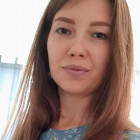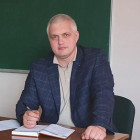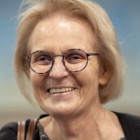Presentation Panel
Learning in Times of War and Crisis
Date Friday, Nov 24 Time – Room: Koepenick III
Speakers in this panel will discuss the potential of technology in facilitating access to education for children affected by armed conflicts and crises, specifically in Syria.
They will also cover strategies to motivate students and sustain the learning process during crisis conditions in the Ukraine and the challenges of providing effective education to refugees in conflict-affected African countries, proposing a new training programme in FAIR Data Management to help refugees gain qualifications needed to fit the EU job market.

Victor Ojakorotu
Professor, North West University, South Africa
Prof Ojakorotu, who currently Deputy Director, School of Government Studies, Mafikeng at North West University, Mafikeng, South Africa. His research interests are African Politics, Nigeria, Conflict and Peace, Environmental Politics and Security.
He is widely published in internationally accredited academic journals on the vexing subject of the Niger Delta. Some of books he has published on the Niger Delta are Contending Issues in the Niger Delta of Nigeria, Fresh Dimensions on the Niger Delta Crisis of Nigeria, Checkmating the Resurgence of Oil Violence in the Niger Delta of Nigeria and Anatomy of the Niger Delta Crisis: Causes, Consequences and Opportunities for Peace.

Yuliia Kovach
E-Learning Specialist, Fraunhofer, Germany
Yuliia is an E-Learning Specialist at the Fraunhofer Institute for Applied Information Technology (FIT) based in Sankt Augustin, Germany. She graduated in Ukraine with a degree in pedagogy and methodology and had various positions connected with online education and technologies since then.
After relocating to Germany, she is fascinated by the idea of making educational opportunities available and affordable for everyone through online resources. Currently she is working on the learning opportunities and skill development for refugees coming to EU looking for shelter and job-security. The project is sponsor-based, which encourages companies to invest in high-qualified labour forces that need initial guidance through new work requirements.

Mirey Alfarah
Educational developer/Researcher, University of Bergen, Norway
Mirey Alfarah, PhD in Education from the Autonomous University of Barcelona, is a postdoctoral researcher at the Pharmacy Center of the University of Bergen. With extensive experience as an educational developer and researcher, Mirey brings a deep understanding of educational interventions and research. She has a particular expertise in educational interventions in emergencies. In 2021, she joined the FREMFARM project, collaborating with pharmacy educators to design, implement, and evaluate active teaching methods aimed at enhancing the professional development of teachers and fostering students' communication, reflection, and innovation skills.
Links

Andrii Holovko
Project Team Member, HNEE
Born on April 23, 1981 in the village of Morochno, Rivne region, Ukraine. Was moved to the city of Vynogradiv, Zakarpattia region of Ukraine, along with the family in 1991, where secondary school was graduated from in 1998. In 2003, a master's degree in business management was received at the Ukrainian National Forestry University (UNFU). In the same year, employment was started as an assistant professor at the Department of Forestry Economics and Management at UNFU. In 2010, a PhD in Economics, specializing in the economics of natural resources management and environmental protection, was obtained. In 2012, along with employment at the university, work was begun for SGS as an expert on social and economic issues, and in 2018 as an FSC forest management auditor. Since 2013, an appointment was made as an Associate Professor at the Department of Management of Organizations and Administration at UNFU. In 2017, a specialist degree in forestry was received. From 2017 to 2021, the head of the Department of Management of Organizations and Administration at UNFU. After the reorganization of the departments, since 2021, an associate professor of the management and marketing department at UNFU. Since 2016, active cooperation has been maintained with the Eberswalde University of Sustainable Development (HNEE). From 2016 to 2023, participation has taken place in a series of projects within the framework of the East-West Dialogue program of the German Federal Foreign Office. Since September 2022, employment has been ongoing as a member of the project team at HNEE within the DAAD project "Ukrainian-German Teaching Network for a Digital Transformation of Environmental Education". This project is aimed at improving online education in times of war in Ukraine.
Moderator

Barbara Mercer-Moser
Visiting Fellow Oxford Refugee Studies Center, University of Nairobi, Kenya
Barbara Moser-Mercer, professor emerita and founder of InZone (University of Geneva), is visiting professor at University of Nairobi, engaged in strengthening African solutions that advance Higher Education in Emergencies (HEiE) and has designed and been coordinating the African Higher Education in Emergencies Network (AHEEN) operating in Kenya, Somalia, South Sudan, Burundi and South Africa to ensure that forcibly displaced youth access and complete higher education. She has also been a Visiting Fellow at the University of Oxford’s Refugee Studies Center to advance her research into Higher Education in Emergencies. Following her initial training as conference interpreter she pursued her studies and research in cognitive psychology, focusing on the development of expertise in complex cognitive skills. She has applied these findings to learning in protracted humanitarian emergencies.
Will Distance Learning Lessen The Negative Impact of War on Refugee Learning Loss in Africa?, Victor Ojakorotu
This presentation discusses the challenges of providing effective education to refugees in host countries, particularly in conflict-affected African countries.
Through his talk, Victor Ojakorotuo seeks to expand knowledge on how African countries can limit refugee learning loss through distance learning, drawing on qualitative methods.
Empowering Refugee Integration Through Learning Opportunities and Skill Development, Yuliia Kovach
This presentation will discuss the challenges faced by refugees in host countries, including skills mismatch and lack of job opportunities, and proposes a new training program in FAIR Data Management to help refugees gain the qualifications needed to fit the job market of the EU.
Yulia Kovach will explain how the program encourages large companies to sponsor the initiative to discover the potential of the job forces coming to EU countries. She will also focus on the challenges faced by refugees and how to empower them to unlock their potential, and will identify external and internal factors affecting learning capabilities.
An Opportunity for Change: Toward a Learner-Centered Pedagogy in Areas Affected by Armed Conflict. Opportunities Offered by Low Tech ICTs, Mirey Alfarah
This presentation will explore the potential of Information and Communication Technologies (ICTs) in facilitating access to education for children affected by armed conflicts and crises, specifically focusing on the context of Syria.
By leveraging ICTs, Mirey Alfarah will address the challenges of providing education to children who are internally displaced or to refugees in host countries. Her research emphasises the transformative potential of ICTs in shifting towards a learner-centered pedagogy, and she will share examples and best practices that highlight the benefits of ICT integration, the role of teachers as guides and facilitators, and the importance of continuous assessment and monitoring of student progress.
Specific Features of Online Teaching in Ukraine in Times of War, Andrii Holovko
This presentation will develop a comprehensive vision of the future directions that innovative online education should pursue to cater to the needs of students in both crisis and stable circumstances.
Andrii Holovko will share his experience of teaching online in crisis conditions in Ukraine during times of war. He will provide strategies on how to motivate students amidst external distractions and stressful factors and how to sustain the learning process during power outages and internet disruptions. He will also elaborate on ways to overcome challenging conditions and ensure adherence to quality standards.
Lastly, Andrii will focus on approaches to humanising online education through strong teacher-student relationships that foster a sense of care and community during crises.